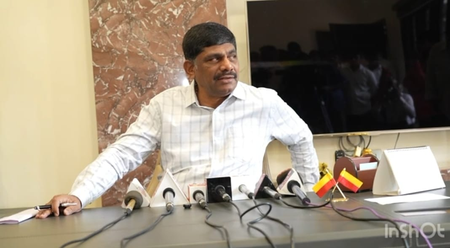Copyright Slate

Sign up for the Slatest to get the most insightful analysis, criticism, and advice out there, delivered to your inbox daily. In the three years since Elon Musk took control of Twitter and made it into X, nobody has gotten a more intimate view of the site’s transformation than Will Stancil. If you know his name, it’s a sign that you’ve seen (or perhaps joined) some intense online arguments among American liberals, progressives, and leftists over the past decade. Stancil’s forcefully held ideas about how media consumption affects political power have gotten him into a million left-on-left arguments over the years, though not as a loyal foot soldier for any particular wing of the Democratic Party. The 40-year-old civil rights lawyer is an intense fighter, so much so that he’s one of the few people to have gone from the posting trenches to actually running for something. (He came in second in a Democratic state House primary in Minnesota last year.) Stancil posts a lot about the ramifications of Musk turning the platform into a conservative playground for harassers and bots. Stancil would know. Grok, Musk’s white supremacist–tuned chatbot, recently offered a user a vivid explanation of how he could rape Stancil. In October, a woman with 43,000 followers debuted an A.I.-slop cartoon called “The Will Stancil Show,” depicting a fictional Stancil as a parody of wokeness who hands out free housing vouchers to groups of Black kids. The cartoon is an ongoing right-wing meme, which Musk himself has had a good, hearty chuckle about. The creator has memed her own work, calling Stancil “the most raped man alive.” Among this creator’s expressed views is a desire to remove all Jews from the American government. I talked with Stancil this week about the current state of Twitter, his experience there, and what Democrats should internalize about social media. Our conversation has been edited and condensed for clarity. Alex Kirshner: In the spreading of this A.I. cartoon, how many people are having fun at your expense, as opposed to harassing you in a threatening way that gives you worry for your safety? Will Stancil: I’ve been through many different waves of harassment and threats over the years. This one hasn’t really been about threats. The cartoon isn’t inherently threatening—it’s just overwhelming to have your identity seized by literal neo-Nazis and turned into a meme or a character in a show. This has been less threats and more reputational damage. After Charlie Kirk’s assassination, some of these same people—or factions of the neo-Nazi movement—leaked my phone number and home address. I’ve gotten some very frightening threats. You’ve expressed strong views on how social media shapes political reality, particularly on X. What role do you think this kind of A.I.-based pile-on is meant to play for the people who made it go viral? Social media is very influential in how people think about politics. Americans spend something like six hours a day online—twice as much as they spend watching TV. People form their political opinions largely by watching what others around them think, especially people they perceive as smart or admirable. If you’re online all day, watching your favorite influencers and seeing which opinions rise to the top as the “correct” or “cool” ones, you’re more likely to adopt those. These harassment campaigns function the same way bullying works in high school: They define who’s in and who’s out. The message is, “Be with us, or be the target.” When these videos mock me for being a civil-rights guy or for opposing fascists, they create pressure to treat those views as ridiculous. If you don’t, you’re the butt of the joke. And susceptibility to that isn’t about intelligence or education. It’s about wanting acceptance. Elon Musk isn’t stupid; he has the resources to think independently. But he desperately wants acceptance from the public at large, which he defines as his Twitter feed. So when this meme started spreading, I knew he’d eventually join in because his personality makes him susceptible to this kind of group pressure. Are enough of those people on X that it’s materially worsening political discourse? It’s always been smaller than Instagram or TikTok, but now that it’s a private company, it’s much more of a black box. I’ve always thought that Twitter is extremely important in governing our political discourse. Not because lots of normal people use it, but because the people with cultural and political power do. Journalists, politicians, and influencers congregate there in huge numbers. When something blows up on Twitter, the average person on the street might not know, but it filters to those networks fast. Even before Musk, you’d see it. Protests or movements would start on Twitter and migrate to other platforms. Under Musk, the same dynamic now benefits the far right. Extreme ideas that most of the public doesn’t support are gaining traction inside the GOP because they’ve been normalized on Twitter. In those circles, you’re expected to laugh along, not object. You can see it in the reaction to Nick Fuentes and the Heritage Foundation stuff. Republicans are not willing to be the party pooper who says, “Wait a second, we shouldn’t let Nick Fuentes into the tent. This is the worst, worst guy imaginable.” If you do that, then you have revealed yourself among those on this Twitter tastemaker bubble as not in on the joke. You’re not one of the cool kids. An amazing number of people who are powerful in the political right are just unwilling to do that. That sounds a lot like what conservatives said about the left five or seven years ago. I agree. I’m progressive myself, so I didn’t object to the ideas being spread then. But progressives dominated Twitter for a while and punched above our weight culturally. You could see it in 2020, when corporate America suddenly embraced a “racial reckoning.” Five years later, many of those same companies are either embracing or showing openness to far-right ideas. It’s not that they have deep values. They just reflect what they perceive as the cultural mainstream. And that mainstream is now being shaped heavily by social media, especially Twitter. Some argue that since Twitter’s become a right-wing harassment machine, people should just leave. You don’t, despite being maybe the most harassed guy in the site’s history. (Admittedly, there are many candidates for this title.) Why not? “Most-harassed man in the history of Twitter” might be the first line of my obituary. My view isn’t that no one should leave. Most people should leave. If you’re a politician, you should certainly leave. If you’re a journalist, you should probably leave. It’s not healthy to be on there. The whole environment is designed to brainwash you into thinking far-right ideas are normal. What I reject is the liberal notion that “if we leave, the platform won’t matter.” These people don’t need us there to do what they’re doing. It’s a radicalization chamber—they’ll invent liberals to attack. If I left, they’d just attack the cartoon version of me. I stay because there are still lots of journalists, politicians, and regular people who haven’t left. It’s important they still see basic liberal or progressive viewpoints expressed. These days my tweets are basically: Elon Musk sucks and is a fascist; Donald Trump sucks and is a fascist; Twitter should be destroyed; the far right is out of control. You’re not tweeting about the Vikings. God, no. I don’t tweet about normal stuff anymore. I don’t get into long policy debates either. It’s just about maintaining visible resistance so people don’t slowly acclimate to this new environment. I can’t believe how many centrist people, pundits, even respectable people, have started saying the word retard, which is adopting this language of the far right because it’s just around them, it’s their environment, and they have acculturated to it. You see shifts in the way they talk about immigrants, accepting the idea that immigrants are maybe dangerous. Accepting race science, the idea that Black people are intellectually inferior. What’s the word I’m looking for? People discussing race science as anything other than the dumbest fucking thing in the world. People act like it’s the most normal thing. “Oh yeah, we just disagree on that.” Once you’re surrounded by that, you have two options. You can make a scene and say “Get out, I won’t talk to you,” which makes you look crazy, or talk to them like they’re normal. Most people choose the latter. If you’re going to stay, you have to fight everyone around you all the time. They’re trying to wear you down—to compromise you by forcing you into social relationships with foul people. And most people don’t want to fight all the time. Some liberal writers have argued for a “stay and fight” approach to Twitter, that it’s still a place where you can persuade people. Is that really possible given Musk’s control of the algorithm? I’ll say something controversial: The algorithm isn’t the main obstacle. You still mostly see the people you follow. People are social creatures. If you show me a feed of 100 people, I’m going to pick out the five that I know and respect and read them closely. This analogy is abused, but the larger issue is that Twitter has become the proverbial Nazi bar. People are pulled toward what they perceive as the consensus of the room. You can’t out-argue that. If I could command everyone to leave, I would 100 percent do that. That clearly is not going to happen. And so what do you do, in the universe where so many influential people are still hanging out there? I don’t think there is a great solution, but sticking it out and shouting, “Trump is bad! He’s still bad! Keep your eye on the ball!” is one of a set of very poor options. This will come up again with TikTok if and when Trump’s deal for that platform closes. It’ll clearly become a right-tilted algorithm, controlled, if Trump gets his way, by some of his biggest friends in business. Neither of us thinks anyone is going to leave TikTok. What would be your plan for that? TikTok’s different because it’s 98 percent the algorithm. There’s nothing else to it. It’s a guided tour. On Twitter, you pick who to follow. TikTok just shows you what the system wants. I’ve tried making a few TikToks. It’s a slot machine: either 400 views or a million, nothing in between. That’s increasingly true on Twitter too. You either get four likes or 130,000. It’s all about whether the algorithm decides to feed it out. So I don’t think making anti-right-wing TikToks would reach many people. Plus, the problem here with TikTok is that 17-year-old kids are just getting memes. They don’t care. So what can be done? Maybe the answer is just that, social-media-wise, it’s all over. I don’t have a perfect solution here. First, this is the struggle. You have institutions that matter, that inform the public. The right is taking them over one by one. It is amazing how little the powerful people on the liberal side seem to notice or care. I was screaming to high heavens about how bad Elon buying Twitter was in 2022, and I remember the Biden White House acting like it was no big deal at all. And a lot of Democrats voted for the bill that set this TikTok deal in motion. Biden signed it. I find it really striking how Trump is taking control of the private sector in some ways to put all these media companies in the hands of his allies, and we don’t see even a hint of the legal strategies that we see against his immigration policies, for example. They should be screaming, lawyering up, doing whatever they can to slow it down—shareholder suits, creative litigation, anything. These are huge, messy deals; throw some resources at making them messier. Liberals sometimes act like if we stop paying attention, the problem disappears. Remember when the Huffington Post said it would cover Trump in the entertainment section [in 2015]? Just because you stopped paying attention to him doesn’t mean he ceases to exist. What liberals and progressives need to do is say, “These institutions exist in society, they’re powerful, and we have to think about how to exert some control over them.” The right is seeing the culmination of a many-years-long campaign to actually seize this kind of cultural influence. We just don’t even think about it. And Democrats in Congress, who are the natural leaders right now for half of the political spectrum, are singularly focused on health care. The entire larger social infrastructure of society just doesn’t even seem to exist on their radar. I want to shake them and ask, “What do you think is happening? Why do you think the country has gone insane?” Trump is literally saying TikTok should be “100 percent MAGA,” and Democrats are like, “Huh, that’s odd.” Guys, this is going to break a generation. This is an enormous deal, and we know this because we just demoed it with Twitter, and it was 100 times worse than you thought it’d be. TikTok is a much bigger service that reaches a lot more impressionable people, and there’s nothing. It’s insane to me.



